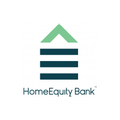
If you are not redirected within 30 seconds, please click here to continue.
Samedi: 10h – 16h HAE

If you are not redirected within 30 seconds, please click here to continue.
If you are not redirected within 30 seconds, please click here to continue.
Why reverse mortgages have higher interest rates than traditional mortgages

Reverse mortgages have become a key financial solution for many Canadians who want a more comfortable retirement.
With a reverse mortgage, Canadian homeowners aged 55+ can access tax-free cash from the equity of their home while continuing to live in it — and they don’t have to pay back the loan until they move or sell their home.
One key difference between a reverse mortgage and a traditional mortgage, however, is that reverse mortgage rates in Canada are typically higher. Here’s why.
Why are reverse mortgage rates higher?
To understand why reverse mortgages come with higher interest rates, it’s important to consider how they differ from traditional mortgages:
- Income and credit score are not qualifying factors.
- You don’t need to make any monthly mortgage payments — not even interest — for the lifetime of the loan. The lender’s costs are therefore greater.
- You can receive the money in a lump sum, in regularly scheduled deposits, or access a portion of the funds at a later time.
- You only pay back what you owe when you decide to sell your home or move out.
- Select financial institutions offer a No Negative Equity Guarantee, meaning as long as you meet your mortgage obligations, you’ll never owe more than your home’s fair market value when the time comes for you to sell it.
- There are federal programs in place that enable banks to fund their traditional mortgages at a lower cost. Reverse mortgages don’t qualify for these programs, which makes funding costs higher.
With the flexibility and security of not having to make monthly mortgage payments, among other benefits, reverse mortgage rates come at a premium.
Benefits of a reverse mortgage can offset the higher interest rate
Many retirees could struggle to qualify for a traditional mortgage or even a home equity line of credit: their income or their credit score could be too low for most banks to agree to their loan. Depending on market volatility, solutions like a HELOC can be called at any time, making the product a less secure option.
Even borrowers who do qualify, income could change in retirement resulting in difficulty to make the required mortgage payments on more conventional products. The required payments could have a negative impact on their standard of living in retirement and some retirees could end up defaulting on their mortgage. In that case, borrowers could be at risk of losing their home.
Qualifying for a reverse mortgage, however, is easier, given that income and credit score are not qualifying factors — and, crucially, that no regular payments are required. This means that reverse mortgage homeowners can’t default on their mortgage payments, so they’re not at risk of losing their home, as long as they meet their mortgage obligations.
Factors that affect reverse mortgage rates in Canada
There are several factors that can have an impact on reverse mortgage rates, including:
- The interest rate term: The interest rate term is the amount of time you sign up for the mortgage, usually between one and five years. On average, reverse mortgage rates in Canada are a little higher for longer terms.
- The conditions of your reverse mortgage: More flexible and short-term reverse mortgages (without prepayment penalties) come with slightly higher interest rates.
- How you access the funds: Some reverse mortgage options allow you to draw a lump sum and subsequent regular monthly deposits. In this case, you would pay the fixed or variable term rate for the lump sum and the variable rate for the regular deposits.
Average interest rates on a reverse mortgage
Generally speaking, reverse mortgage rates start at around 6.88% (as of August 2022). To get a sense of how reverse mortgage rates stack up against alternative lending options, like traditional mortgages, HELOCs, and personal loans, take a look at the graph below.

The lowest current reverse mortgage rates are typically only around 2.59 percentage points higher than today’s lowest traditional mortgage rates (as of August 19, 2022, 4.29% was the lowest five-year fixed mortgage rate in Ontario on RATESDOTCA).
For many borrowers, paying extra for a reverse mortgage is money well spent. They get to cash in a large chunk of their home equity without having to either move from their home or make regular mortgage payments (which would impact their retirement income).
How a reverse mortgage can help with cash flow in retirement
The average Canadian retiree has an annual income shortfall of around $20,000. Coupled with longer life expectancy, limited government pensions, diminished company pension plans, and an ever-increasing cost of living, the need for a retirement financial planning solution is crucial.
While the average interest rate on a reverse mortgage is a little higher than on a traditional mortgage, that difference shouldn’t have a major impact on retirees’ day-to-day living expenses.
Most importantly, though, homeowners don’t need to make regular reverse mortgage payments, so they can increase their monthly cashflow without increasing their monthly costs.
Interested in creating content with RATESDOTCA? Contact us at email@rates.ca.
Get money-saving tips in your inbox.
Stay on top of personal finance tips from our money experts!








